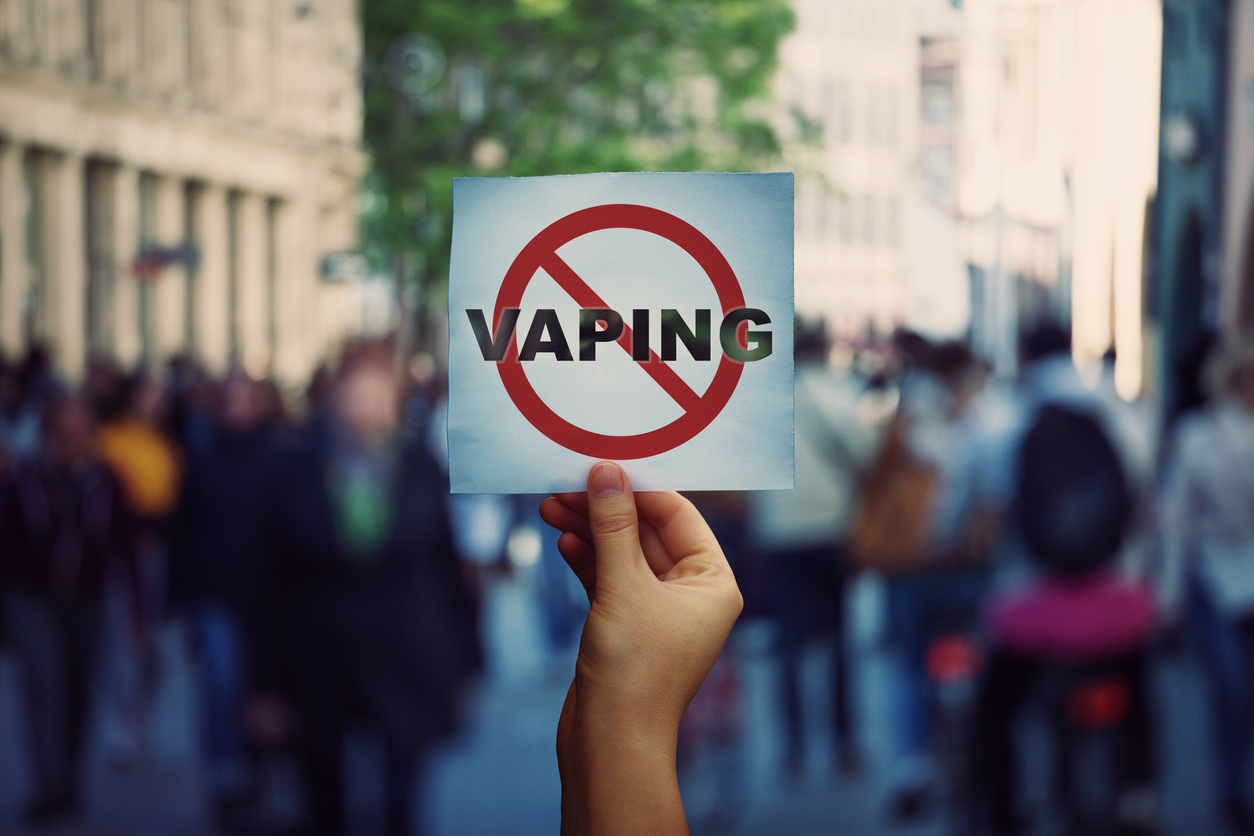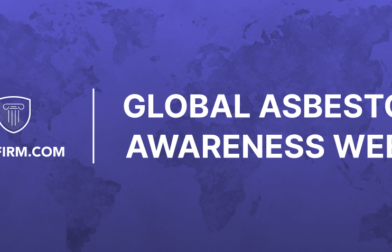Update on Vape Bans at Federal and State Levels

The health risks associated with vaping continue to come to light, further fueling a widespread call for banning e-cigarettes. While a federal ban doesn’t seem forthcoming, states have taken action on their own, ranging from raising age limits to filing lawsuits.
Federal and State Governments Push for Vape Ban
The use of electronic smoking devices, collectively known as vaping, has always carried a reputation as a safer alternative to real cigarettes. While it is true that most vaping products carry far fewer carcinogens than cigarettes, they are not free from risks.
The full scope of those hazards is still being discovered, but health officials are already sounding the alarm on several fronts.
Quick Facts About Vaping Hazards
- Vaping products contain nicotine, which has been linked to delayed brain development in teenagers.
- Adults are not immune to vaping’s dangers. The Centers for Disease Control and Prevention (CDC) has reported thousands of vaping-related lung injuries and dozens of deaths as of January 2020.
- Vitamin E acetate, a common additive to vaping products, has been connected with lung damage.
In spite of the mounting medical evidence, a permanent ban on vaping has yet to gain traction. President Donald Trump initially appeared ready to enact a federal ban on flavored e-cigarettes, but he pulled back at the last minute.
While other actions on the federal level remain under discussion, states are trying to put their own bans in place.
Massachusetts, for instance, tried both a statewide ban on vaping products and restrictions on the sales of mint and menthol nicotine and tobacco products. Both proposals were met with fierce opposition from convenience store owners, who protested that the limits hurt their profits.
Other states have been met with more luck. Washington managed a 120-day on flavored vaping products, with tougher, more permanent legislation on the way.
The bottom line: Vaping is dangerous — especially to teenagers — and it should be banned.
Updates on the Federal Vape Ban
Apart from health concerns, advocates for a vaping ban argue that teenagers are a primary marketing audience. They point to flavors like mint and bubblegum, as well as the brightly colored lettering on e-cigarette packaging, to argue that teens are at particular risk for vaping.
These were among the concerns pitched to President Donald Trump, who initially agreed to enact a federal ban on vaping products. Intense lobbying from the vaping industry, however, led Trump to back down from that decision.
The President’s concerns included:
- Banning e-cigarettes would kill jobs in the vaping industry.
- Demand would be met by a black market pushing dangerous counterfeit products.
While Trump backed off in the short term, the U.S. Department of Health and Human Services and the Food and Drug Administration (FDA) continue to work on ways to enact a vape ban.
What States Have a Vape Ban?
While a federal vape ban inches toward reality, states and municipalities have taken the initiative to enact their own restrictions on vaping.
Some of the notable actions include:
- San Francisco: The city’s Board of Supervisors banned the sale of e-cigarettes in June 2019 — a remarkable move considering that JUUL, one of the top vape manufacturers, is headquartered there. An attempt to overturn the ban was soundly defeated by 80% of voters in November. San Francisco is in San Mateo County, which has also enacted a ban on e-cigarettes in unincorporated areas.
- Massachusetts: Massachusetts was the first state to permanently ban flavored tobacco and nicotine vaping products. Legal challenges from the New England Convenience Store and Energy Marketers Associations are expected.
- New York City: The metropolis’ city council voted 42-2 in late November 2019 to ban flavored electronic cigarettes. Council members lauded the measure as a protection of New York’s vulnerable youth, while the New York State Vapor Association called it “an overreaching infringement of their constitutional right to choose a product that improves their health.”
- Maryland: An emergency ban is in the works in Maryland, but has yet to go up for a vote. The ban builds on a class-action lawsuit by two Maryland counties against e-cigarette maker JUUL Labs and Altria Group. The lawsuit alleges that JUUL targeted teens and pre-teens with deceptive advertising.
- Michigan: Michigan’s 180-day vape ban, which went into effect on September 18, 2019, includes the online and retail sale of nicotine products in any flavor except tobacco. It also prevents vaping advertising from using words like “clean,” “healthy,” and “safe.”
- Oregon: Oregon’s six-month vape ban, enacted October 11, 2019, includes fines up to $500 per violation against retailers who repeat violations.
- Washington: Washington’s 120-day ban on flavored vaping products was met with typical opposition from e-cigarette users, who chanted “shame” at the Board of Health’s voting session.
- Montana: An effort by the Montana governor to ban all flavored e-cigarettes was blocked by a temporary restraining order brought by vape shop owners.
- Rhode Island: Rhode Island’s 120-day vape ban was more limited than others; the state’s governor called vaping a “public-health crisis” for children.
Other Federal and State Action Against Vaping
Instead of or in addition to bans, some states have implemented other means of curbing the harmful effects of vaping.
Warnings and Investigations
Until a widespread ban on vaping is put in place, federal and state officials will continue to share their research into the health hazards of vaping. The CDC’s most recent statistics of deaths and illnesses linked to vaping are just one example of information individuals should consider before picking up an e-cigarette.
Lawsuits
In the wake of Trump’s about-face on a federal vape ban, states have taken action on their own to target the manufacturers of vaping products.
New York, North Carolina, California, and Washington D.C. are all using the legal system to accuse vape companies of deceptive advertising practices and failing to adequately warn consumers of vaping’s risk.
Raising the Legal Age Limit
While an outright ban on vaping will take time, states do have short-term measures to try to control the widespread issue. Some states have raised the age limit to purchase vaping products from 18 to 21. Maryland, Virginia, and Washington D.C. have all adopted this tactic.
Vape Companies React to Proposed Bans and Regulations
While the pushback on a vaping ban from retailers and advocates has been strong, manufacturers like JUUL have listened to public feedback.
For example, mint flavor pods — the most popular flavor among high school students — were pulled a month after all fruity flavored products were taken off shelves. In addition, warning labels mirroring those on cigarette packages are now included on e-cigarette packaging.
In September 2019, JUUL, which owns the market share on e-cigarettes, announced it would stop all broadcast, print, and digital advertising in the U.S. Its CEO also stepped down amid public criticism. Around this same time, the merger between tobacco giants Philip Morris International and Altria was canceled amid ongoing controversy surrounding e-cigarettes.
Fact-Checked and Legally Reviewed by: LawFirm.com
LawFirm.com makes it easier to take legal action. We have information, lawsuit guides, and breaking news about drugs, products, and other issues that could affect you.


